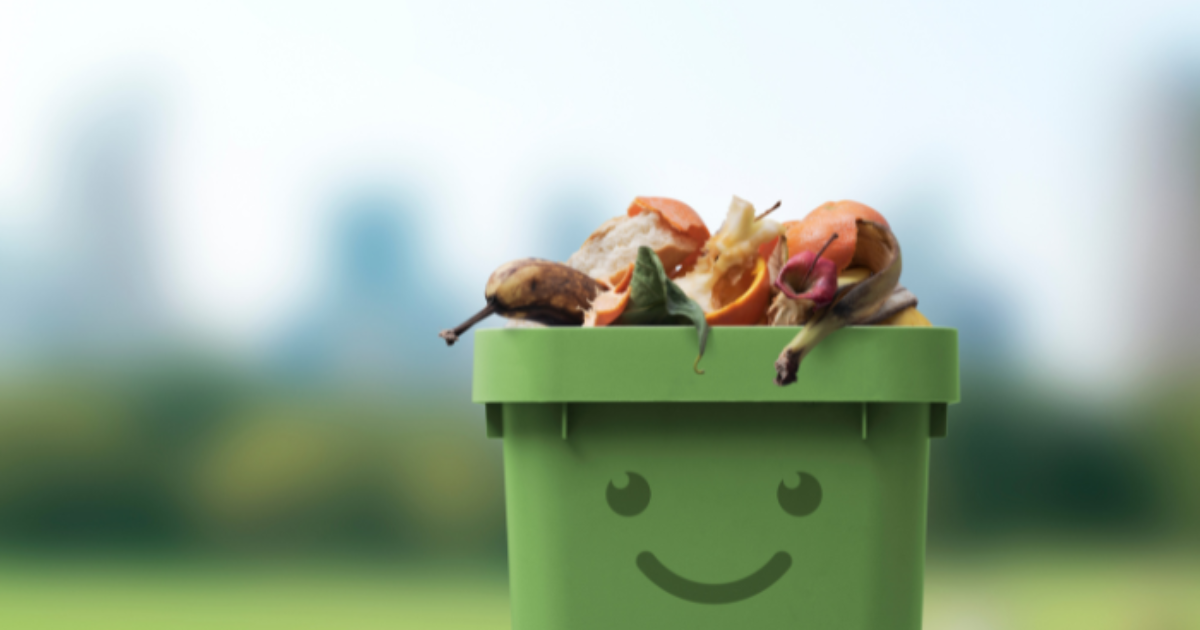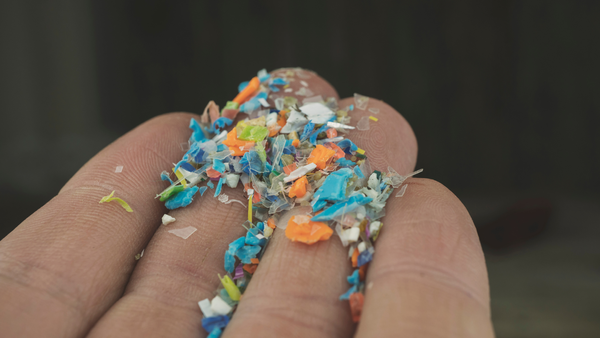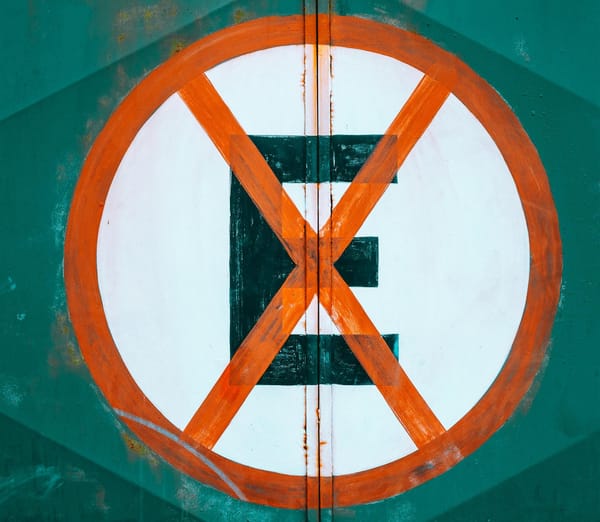FOGO is an Australian Circular Economy Success Story
FOGO is transforming waste in Australia and shows us what can be achieved when policy innovation meets behaviour change.

Trump's recent signing of an Executive Order to bring back plastic straws wasn't just about straws, it was a signal to the fossil fuel industry that he has their back.
Then there is his 25% import tariff on steel and aluminium, now forcing beverage giants to rethink their packaging.
And what’s their fallback?
Plastic... of course.
Coca-Cola, the world’s biggest plastic polluter, is warning that rising aluminium prices might push them to produce even more PET bottles.
Meanwhile, Trump’s policies are lining up neatly in Big Plastic’s favour and propping up Big Oil while undercutting alternatives like reusable and refill systems, and compostable materials.
The oil and gas industry was Trump's fourth-biggest source of cash for his successful 2024 presidential bid, and with the fossil fuel industry's focus now turning to plastics and petrochemicals as growth opportunities (and a hedge against threats to their revenues in the transport and energy sector), they're now expecting some return on their investment.
Combined with last year's failed plastic treaty negotiations and the hype slowly escaping from the ESG hype balloon, I began to feel some fatigue and hope depletion creeping into my otherwise sunny doomer-optimism.
As if on cue, I opened the podcast app on my iPhone to find this great little podcast from the Guardian on food waste and why you should take the sticker off your apple.
As I was listening to it, a realisation dawned on me that my disappointment in compostable packaging being excluded from FOGO had blinded me to how successful and potentially seismic this program has been.
And that's not hyperbole. What is significant about this story, and why I love it, is that this isn't your typical hero's journey that our culture has become obsessed with. This runs counter to the founder cult narrative. There is no plucky risk-taker who singularly overcame adversity to make this happen. This is a whole of system triumph.
We hear so often about the need for systems change, and here, right under our (pinched) noses, is a loamy, earthy, grounded example.
FOGO (Food Organics, Garden Organics) is quietly reshaping Australia’s waste landscape. What started as a policy-driven push to divert food waste from landfills has become a powerful case study of what can be achieved when government, industry, councils, and communities work together.
While the rollout is still in progress (with gremlins and issues abound), the Australian FOGO system shows us what can be achieved when policy innovation meets behaviour change.
Initially met with resistance, households pushed back against changes to bin collection when red bins (landfill waste) were now only being collected fortnightly instead of weekly.
But, with the green organics waste bin being collected weekly, FOGO quickly proved its value. Within weeks, communities that had resisted were actively engaged, with many becoming vocal advocates for better waste sorting.
This shift wasn’t accidental; it was the result of well-structured government mandates, local council rollout, and public education campaigns that made participation easy and meaningful. The result? A nationwide system that is not only diverting millions of tonnes of food waste from landfill but also reshaping public attitudes toward waste responsibility.
It's not all compost and roses
Food waste accounts for nearly half of what Australians throw in their red bins, generating millions of tonnes of methane in landfill each year. By mandating FOGO collection (already in place across WA, SA, VIC, and rolling out in NSW) governments have collaborated with the organics waste industry to connect up the infrastructure required to capture this organic material and return it to the soil as compost.
This is a major win for emissions reduction, soil health, and landfill diversion. But the long-term success of FOGO hinges on compost quality, and right now, that’s at risk.
The issue? Contamination.
The transition from garden waste composting to food and garden organics has introduced new challenges—namely, plastic, glass, and other non-organic materials sneaking into the system. Contaminants as seemingly insignificant as plastic fruit stickers and bread tags become major roadblocks as they survive the composting process (slipping through the final filter) and degrade trust in the final product.
As a result, a major challenge facing FOGO’s long-term success is offtake. Who will buy and use the end-product compost? While composting food and garden organics is a huge win for waste diversion, its value depends on maintaining high quality.
Right now, a two-tier compost market is emerging: high-quality garden organics compost and lower-quality FOGO compost contaminated with plastic, glass, and other non-organic materials.
Farmers, councils, and landscapers are pushing back against poor-quality compost, unwilling to risk soil contamination or damaged credibility. Without strict standards to ensure FOGO compost remains free from plastic fruit stickers, bread tags, and other contaminants, demand could collapse, undermining the entire system. If we don’t safeguard compost quality now, we risk turning a circular economy success story into a wasted opportunity... literally.
That’s why enforcing strict compost quality standards is urgent. The current voluntary AS4454 standard allows up to 0.5% contamination. That's far too high. Some councils are taking the lead with stricter guidelines, but this needs to be system-wide. Without uniform standards and enforcement, a two-tier market will result in poor-quality compost being dumped into landfill rehabilitation rather than being used for agriculture and urban landscaping.
The two-headed circular economy nemesis
As always, cost and logistics are two big hurdles that always crop up with circular solutions. Transporting FOGO compost to farms, especially in rural areas, is a logistical and economic challenge.
Right now, trucks haul compost long distances, but the cost is only justifiable if they have a return load to bring back. Without this, transport costs can become a major barrier to scaling FOGO’s impact.
The solution lies in decentralising composting infrastructure to local facilities that process waste closer to where it’s generated and used. By localising collection, production, and delivery, we can cut transport costs, reduce emissions, and make high-quality compost more accessible to regional farmers who need it most.
Overcoming the challenge that rules them all
FOGO is proving that large-scale food waste recovery is possible. Now, we need to leverage that infrastructure for compostable packaging. Certified compostable materials (when correctly sorted and processed) can be a game-changer in eliminating single-use plastic waste. But if contamination issues aren’t addressed, we’ll face the same roadblocks that have slowed broader adoption.
A simple step is for Governments and EPAs to ban fruit stickers, caddy bags (used to line kitchen compost caddies) and bread tags that aren't certified home compostable. There are myriad alternative materials to replace them. But in the meantime, dear reader, please make sure you remove the sticker from your fruit before placing it in your kitchen compost caddy (always a pain given how many limes I go through making Margaritas).

Implementing laws that ensure fruit labels and bread tags can only be made from certified compostable materials could be the regulatory on-ramp we need for the next FOGO leap.
The next big opportunity
FOGO’s success so far has set the stage for a critical next step: integrating compostable packaging.
By leveraging FOGO’s existing infrastructure, we can create pathways for certified compostable packaging to break down alongside food and garden waste—keeping organic materials in the biocircular loop rather than sending them to landfill.
The key is ensuring only rigorously tested, toxin-free, bio-based and bio-assimilating materials enter the system, preventing contamination and protecting the integrity of the compost. Just as strict standards are needed for food waste compost quality, compostable packaging must meet clear certification criteria to be accepted into FOGO streams.
With national FOGO rollouts accelerating, now is the time for policymakers to align regulations with this opportunity. Collaborating closely with the organics recycling industry they can ensure that verified compostable packaging in FOGO bins (alongside strict enforcement against non-compliant materials) can unlock another marquee circular economy win.
The infrastructure is there. The behaviour change required is in play, and the demand for sustainable alternatives is growing. All that’s missing is the policy shift to make it happen.
Small missteps can derail good systems and narrow thinking can miss huge opportunities. Banning plastic fruit stickers, enforcing higher composting standards, and ensuring that compostable packaging meets rigorous certification criteria are the next critical moves.
Turning wins into a movement
A few weeks ago, I mentioned that while there had been some incredible circular economy success stories, we haven't had organic or memetic replication of those successes.
That's on us.
When they happen, we need to share them, discuss them, learn from them, and make sure they spread memetically. We're up against significant cultural, geopolitical, and economic headwinds. If you are reading this and have a modicum of influence, ask yourself, what can you do to perpetuate this wonderful example of what happens when people and systems work together to make the world a better place... for everyone.
So thank you, Kate Lyons, for opening my frame of reference by covering this story.
FOGO is working.
Let’s use it as a springboard into a more biocircular materials economy built on soils, not oils.
Who knows where this could take us.





